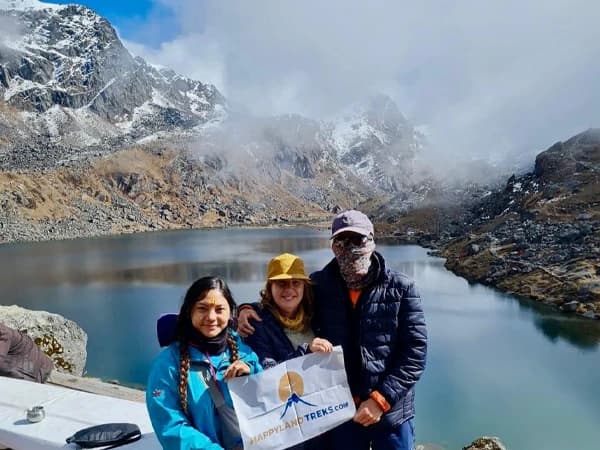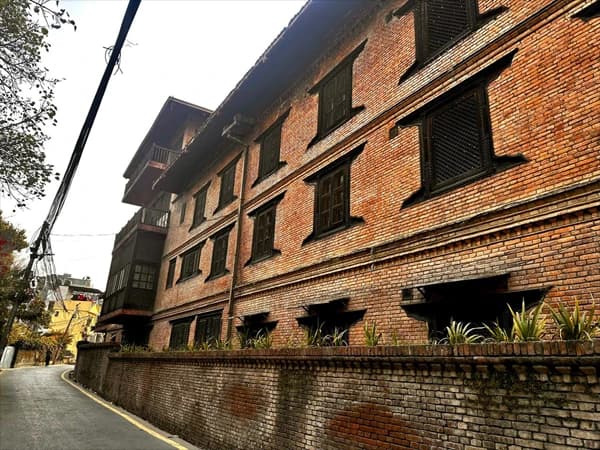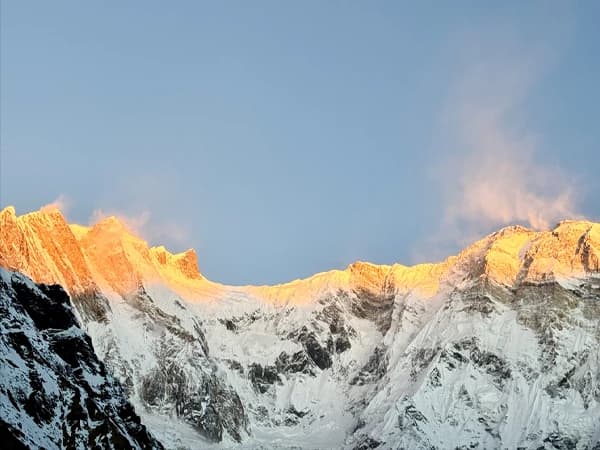Short Trek For Everyone
The Langtang Valley Trek is famous for combining beautiful nature and rich local culture. It’s a great choice for those who want a short but exciting adventure. This trek offers stunning views of snow-capped peaks, the Langtang Himalayas, and colorful traditional villages. It's perfect for travelers who want to experience the best of Nepalese trekking without committing to longer, tougher routes like the Everest Base Camp Trek or the Annapurna Circuit.
The trek usually takes around 8 days, making it a fantastic option for those with limited time. It’s also a popular choice for people who want to acclimatize before taking on more challenging treks. Whether you decide to do the Langtang Trek on its own or combine it with the Tamang Heritage Trail, you’ll enjoy an amazing journey through Nepal’s peaceful wilderness.
A Unique Cultural and Natural Experience
What makes the Langtang Trekking in Nepal so unique is its ability to offer both cultural immersion and natural beauty in one package. Trekking through the Langtang Valley, you'll be treated to views of majestic peaks like Langtang Lirung, standing tall at an impressive 7,246m (23,773ft). The area is also home to charming Tamang and Tibetan cultures, allowing you to experience local life, visit Buddhist shrines, and witness traditional practices.
As you journey through the Langtang Valley, you'll be surrounded by unique landscapes, from lush yak pastures and terraced farmland to rugged terrain that leads you toward glaciers and holy lakes. The trek even takes you to the stunning Gosainkund Lake, a sacred site for many Hindu pilgrims.
Langtang Trekking offers exceptional vistas, including panoramic views of peaks such as Langtang Ri, Kyanjin Ri, and Tsergo Ri, with optional hikes to Tsergo Ri for an even more magnificent viewpoint. These places provide some of the most scenic landscapes in the world, making every step of the trek worthwhile. The Langtang Khola and Langtang River also provide peaceful backdrops to your journey, while prayer flags along the trail add to the cultural atmosphere.
Post-Earthquake Recovery and Modern Trekking Facilities
The Langtang Valley was severely impacted by the 2015 earthquake, with much of Langtang Village and surrounding areas being devastated. However, the region has shown remarkable resilience, with lodges and infrastructure being repaired or rebuilt. This makes the Langtang Valley Trek not only a chance to immerse yourself in nature but also an opportunity to contribute to the region’s recovery.
The newly formed trekking circuit in the Langtang Region takes advantage of the best and most modern lodges along the trail, ensuring comfort during your journey. The route also minimizes the risk of altitude sickness, providing a more balanced and enjoyable trekking experience. A licensed guide or experienced guide is highly recommended to ensure you stay safe and informed throughout the trek.
The Perfect Time to Trek Langtang
The best seasons to experience Langtang Trekking in Nepal are during the autumn (fall) and spring months. In autumn, the skies are clear, offering panoramic views of the Langtang Lirung and surrounding peaks. Spring brings the valley to life with vibrant flowers and migrating birds, creating a colorful contrast to the towering snow-covered mountains. The monsoon season can pose challenges, but the winter season is equally captivating for those looking for a quieter trek with stunning views.
FAQs About Langtang Trekking in Nepal
1. How long is the Langtang Trek?
The Langtang Trek typically lasts around 8 days, depending on the route and trekking pace.
2. How difficult is the Langtang Trek?
While it's a short trek, the Langtang Trek is quite challenging, with long, steep ascents. It is suited for trekkers with a moderate level of fitness and endurance. You’ll need to prepare for altitude sickness at higher elevations like Kyanjin Gompa and Kyanjin Ri.
3. Can I combine Langtang Trek with other treks?
Yes, the Langtang Trek can be combined with the Tamang Heritage Trek, providing an extended cultural experience, or it can serve as an acclimatization trek for more challenging treks like Everest Base Camp.
4. When is the best time to do the Langtang Trek?
The ideal months for trekking the Langtang Valley are spring (March-May) and autumn (September-November), when the weather is most favorable.
5. Is a guide necessary for the Langtang Trek?
Although it's possible to trek independently, hiring an experienced guide can significantly enhance your experience, helping with navigation and ensuring safety. A guide can also provide valuable cultural insights into the Tamang and Tibetan cultures you’ll encounter.
Conclusion
Langtang Trekking in Nepal offers trekkers an unforgettable combination of stunning views, cultural immersion, and challenging terrain. Whether you're seeking a short yet challenging adventure, an introduction to Nepal’s trekking culture, or a peaceful escape into nature, the Langtang Valley Trek provides it all. With its diverse landscapes, vibrant communities, and breathtaking panoramas, it’s no surprise that this trek remains one of Nepal’s most cherished routes.
As you journey through the Langtang Himalayas, you’ll witness firsthand the beauty and resilience of the region, making this trek a truly rewarding experience. Whether you’re trekking to the majestic Langtang Lirung, visiting Kyanjin Gompa, or exploring the Yak pasture at Langshisha Kharka, the Langtang Region will leave you with memories to last a lifetime.
Embrace the adventure of a lifetime with Langtang Trek in Nepal, a destination that truly has something for everyone!



